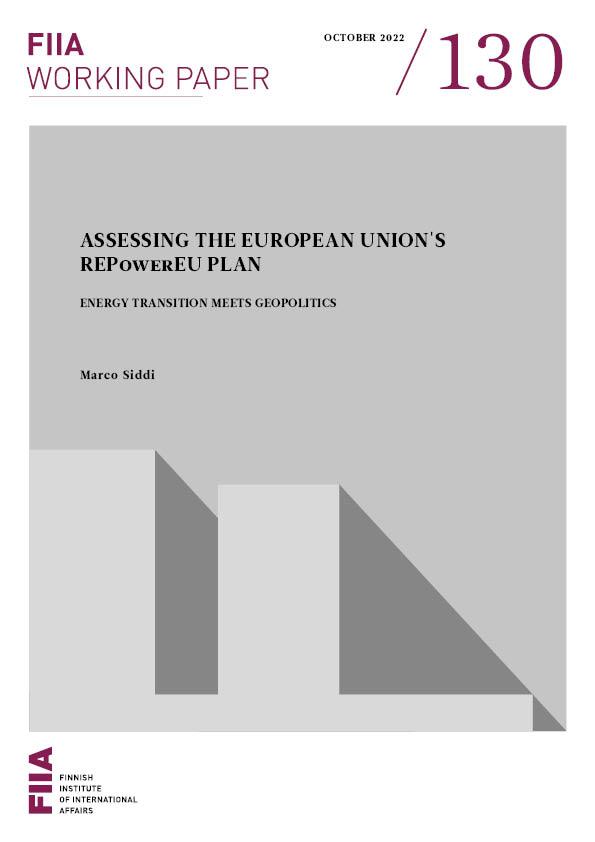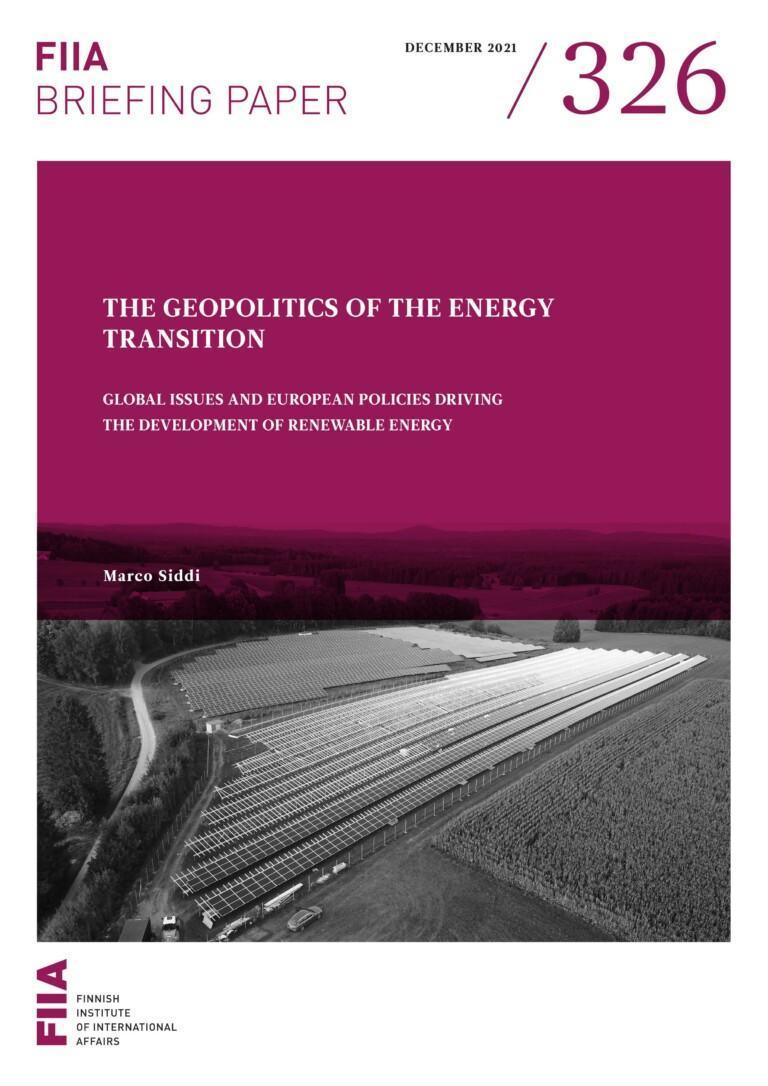The European Union (EU) has been facing an energy crisis since the autumn of 2021, which has been exacerbated by Russia’s attack on Ukraine, geopolitical tensions and the climate crisis. Russia’s military escalation in February 2022 radically changed European perceptions of energy trade with Moscow. In May 2022, the EU announced the REPowerEU agenda, which aims at cutting imports of Russian energy by diversifying trade partners, increasing energy efficiency and saving and accelerating the energy transition.
This Working Paper analyses the main developments in EU climate and energy policy since 2021, with a focus on the REPowerEU plan. The paper argues that the war in Ukraine has led to an acceleration in policies to implement the energy transition in the EU, but numerous challenges and contradictions exist. These include the EU’s quest for alternative and more polluting fossil fuel supplies, constraints on renewable energy production posed by climate change, and disruptions to supply chains of critical materials. While geopolitical tensions undermine global climate action, a faster EU energy transition can make a positive contribution to multilateral efforts to tackle climate change.







